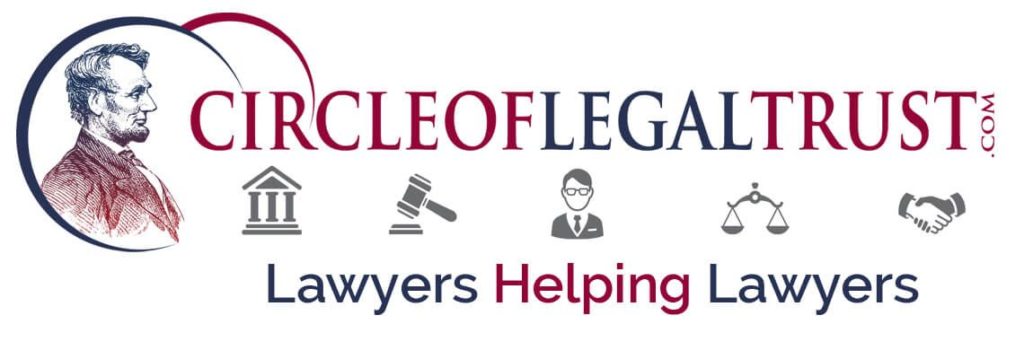Practicing with a Foreign Law Degree in the U.S.A.

While most people looking to be lawyers in the U.S. follow a similar process to become one, that process changes a bit when you’re looking to use a foreign law degree in U.S. territory.
Overall, U.S. lawyers go to law school, present the bar exam, and go through some other legal education requirements to get the degree. There are some exceptions to this rule, but typically, anyone who wants to practice law must follow the process.
People who are trained abroad may be able to practice law in the U.S., although they may need to follow particular guidelines and educational requirements to be able to do it. Moreover, it’s vital to note that the bar examination process may vary depending on the state the foreign lawyers want to work in.
The following article covers how people with foreign legal education may use their professional degrees to practice law in a particular state in the U.S.
Taking the Bar Exam in the U.S. as Foreign Lawyers
Most foreign law graduates look for taking the LL.M, exam to go for the bar exam right after. The LL.M degree (also known as the Master of Laws degree) is an internationally recognized degree for postgraduates. In essence, any international student that has already got their first degree may choose to take the LL.M before taking the bar exam.
However, it’s important to note that completing the LL.M degree program doesn’t make foreign-trained lawyers automatically eligible to take the bar exam. Moreover, foreign-trained attorneys must get their foreign law school degree analyzed by the American Bar Association.
In those cases, the association may take up to a year before assigning valid law credentials according to the ABA model rules. Once the degree is accepted, the foreign-trained lawyers may take the state bar exam as any other person would.
An important thing about international lawyers looking to sit for the bar exam is that they must choose the state where they want to practice law carefully. As mentioned before, some states have different requirements, so choosing one that is more flexible for foreign-trained attorneys may be a better option for some.
Sitting for the New York Bar Exam
New York is one of these ‘flexible states’ for law students who come from abroad. In essence, the New York Board of Law Examiners has particular requirements for international students who want to sit for the bar exam. Depending on the case, the foreign-trained lawyer may get their education shifted to the U.S. system or not.
If the foreign-educated lawyers’ education lasted at least three years and focused on English common law, it’s more likely to get transferred to the U.S. system without any problems. In these cases, the foreign-trained attorney may sit for the bar when they complete their Advance Evaluation of Eligibility, which is given by bar examiners.
International students who don’t fit these criteria may have to complete the LL.M degree program first if they want to take the bar exam in New York.
Sitting for the California Bar Exam
Some foreign students claim that going for the California bar exam is even easier than with the New York bar. In some cases, anyone who was law school-approved to practice law in any jurisdiction other than the U.S. may be eligible for a California bar examination. Some people with a first degree in these studies may choose to take an additional year at an ABA-approved law school or a California accredited law school to get a provision to study the bar examination content.
If the person doesn’t have foreign jurisdiction to work as a lawyer, they may still complete the LL.M program to see if they’re eligible for the state bar exam. That LL.M degree must include some particular courses, such as the California Business and Professions Code, the Model Rules of Professional Conduct of the ABA, the Professional Responsibility Course, and other important items for practicing law in California.
Bar Admission in Other States
As mentioned before, foreign law students or law graduates may practice law in the U.S. in 34 different jurisdictions.
However, these persons’ degrees must go over review by the ABA. Most states require things like:
- Education in English common law
- Law practice in a foreign jurisdiction
- ABA-approved education.
Vermont, for example, may recognize a foreign law study degree without any problems. Washington requires your LL.M degree to be approved by the Board of Governors and to include at least 12,000 minutes on the principles of domestic law and 18,200 minutes of instruction. Overall, these 12,000 minutes may be broken up into four areas of instruction, which include civil procedure, legal writing, or constitutional law.
On the other hand, Winsconsin requires at least 700 minutes of instruction for each semester credit hour in the person’s LL.M if they want to apply for the bar exam, and Georgia requires the person to have a professional degree approved by their foreign government, as well as permission to work there.
About the Bar Exam
Bar exams are fairly similar in each state. It consists of two days and two different exams. The first day involves a multiple-choice test regarding general knowledge, whereas the second day tests your knowledge of the particular state you chose to work in.
Typically, the state bar exam may require you to complete the Multistate Professional Responsibility Exam, which is another exam type. While bar examinations are created with the purpose of giving new attorneys the necessary tools to work, foreign-educated attorneys may not have such an easy time.
In these cases, it’s a great idea to hire a private tutor to assess particular questions when pursuing your first professional degree in law.
What Happens If You Don’t Become A Lawyer?
Some people who aren’t able to complete the LLM program or complete the bar examination become foreign legal consultants. FLCs are lawyers who have limited practice permissions in the U.S. While passing the bar examination would be the best scenario for people, becoming a foreign legal consultant also provides them with a decent alternative.
Need Help with Your Legal Case? Contact Circle of Legal Trust for Assistance!
Becoming a law practitioner in the U.S. may be slightly more difficult if you’re a foreign student. Still, it’s not impossible, so if you set your mind to it, you’re most likely be able to make progress. Our legal counselors are ready to help you with any case you may have, as well as understand all of your rights and responsibilities as a citizen in a particular state. In case you’re someone who needs help with a particular law issue, don’t hesitate to contact the experts at the Circle of Legal Trust.

